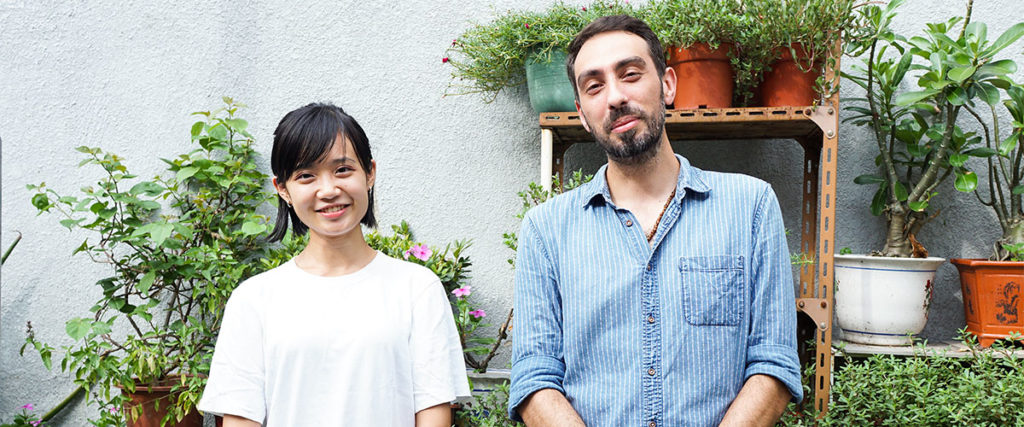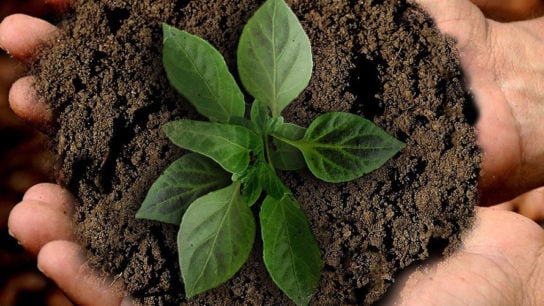Sustainable startup Distinctive Action is offering a biodegradable alternative to plastic bags in Hong Kong. We talked to co-founder Devana Ng to find out how the city’s sustainability scene needs to change.
Plastic bags account for 7% of Hong Kong’s landfill waste – a figure which accounts for 793 tonnes of waste or 10 million plastic bags every day. Addressing Hong Kong’s pressing plastic waste problem, sustainability startup Distinctive Action offers a biodegradable alternative to plastic bags, selling water-soluble ‘Invisible Bags’ made of polyvinyl alcohol (PVA) and plant-based starch.
Founded by Devana Ng and Flavien Chaussegros earlier this year in February, the startup is already well on its way to building a loyal customer base with 20 Hong Kong-based brands, including award-winning sustainability venture Green Monday, endorsing and using their products.
Here, we talk to Devana about the biggest challenges Hong Kong faces when it comes to sustainability, why the city’s government falls short in the green sector, and how she hopes to lead a green revolution from the bottom up.
Why did you choose to focus on plastic packaging with Distinctive Action?
No matter what your lifestyle is, plastic is necessary because so many things are made out of plastic. It’s just something you can’t avoid. In fact, our research shows that people in Hong Kong use an average of 600 plastic bags a year. With COVID-19, this has become an even bigger problem. For instance, more people have been getting takeaway and this produces a huge amount of waste. That is why it is so important to work with restaurants, among other companies and businesses, to tackle the use of plastic bags.
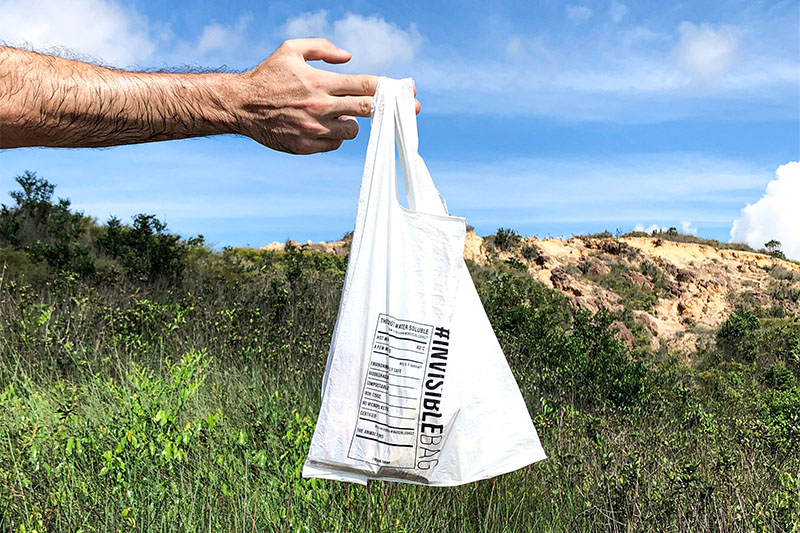
Are companies in Hong Kong open to sustainability-driven change?
Surprisingly, a lot of companies are quite open-minded when it comes to sustainable products. Many of them already care about sustainability, but they don’t have a solution that does not require sourcing from overseas or buying in huge bulk. This is hard for small brands that cannot buy 5000 or 10,000 bags in one go because of the cost and storage issues. What we’re doing as a strategy is lowering the entry-level and offering the option to buy only 200 bags to make it accessible for brands – big or small.
In terms of challenges, it takes a much longer time for big companies and corporations to accept our products. This comes down to the companies’ hierarchical structure and decision-making process. For small brands, they might see our products on Instagram then immediately try and buy the products to use the next day, whereas for big companies that can take up to six months.
You might also like Omnipork: Is Green Monday’s Meatless Alternative Perfect for Asia’s Markets?
How sustainable would you say Hong Kong is at the moment?
I would say that more people and brands are becoming more aware of taking care of the environment and using sustainable products. I’ve seen people starting to make more sustainable lifestyle choices like using reusable cups and straws and buying bar soaps instead of shampoos and shower gels in plastic bottles. This group of people will hopefully increase in a year or two. But, I would say for a lot of people, they still don’t see how they have to change their behaviour. Although the Hong Kong government launched the plastic bag levy scheme in 2015, statistics show that the number of plastic bags used did not reduce. A lot of people are still using plastic bags because of its convenience, and also because so many brands still use them.
Talk to me more about Hong Kong’s Environmental Levy Scheme on Plastic Shopping Bags. What are your thoughts on this? Has the government done enough?
There has not been much improvement since the introduction of the Levy Scheme from the numbers we have seen. At the moment, Hong Kong citizens only get charged 50 cents (USD 0.065) for every plastic shopping bag they use. The government should really work to increase the amount of money charged. 50 cents is such a small amount of money – if you have no bags on hand, you will more than likely pay the 50 cents. At the same time, it needs stricter enforcement in banning the use of plastic bags altogether and looking for alternative solutions to replace them, with PLA plastic bags, for instance.
As a whole, I don’t think sustainability is put at the forefront of the government’s agenda. It is more focused on sectors like the service industry, finance, and also science and technology and AI. The government introduced a mandatory waste charging scheme in 2018, but that was abandoned. Also, as an eco-friendly startup, we don’t fall into any schemes and don’t receive subsidies or funding from the government. Sustainability is simply not a priority, but this is something the government needs to do for the environment.
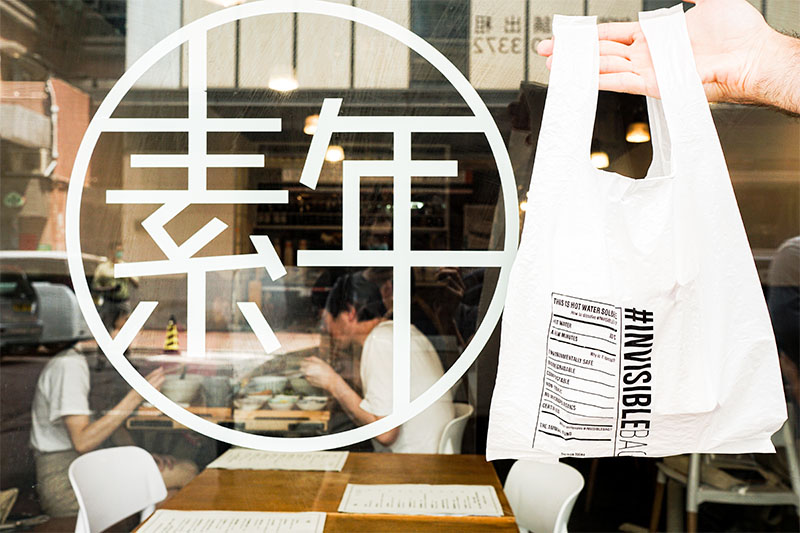
Some brands and corporates have been accused of greenwashing – only using sustainability as a ‘buzzword’ rather than actually being sustainable. What are your thoughts on this?
Some companies may want to have elements of sustainability in their business because they know that it’s important and they want to attract new clients. From a marketing perspective, this could be a way to raise people’s awareness and make more people use your products. But, at the end of the day, sustainable living starts from your daily life and your own behaviour, and these actions are important because not only do they reflect your brand name, but it can impact your friends and family to do the same thing and save the environment.
So, I think it is important to ask whether people behind the businesses are really taking part in being sustainable themselves. If you launch a product and promote its benefits to the environment, but your daily actions do not reflect the same, that is greenwashing to me. You should offer a product when you believe in the concept behind it and you take the action to lower the impact as well. Sustainability is not only a product, but also a mindset and way of living.
What advice would you give businesses looking to venture into Hong Kong’s sustainability scene?
Just do it. It is a trial and error game, so try it first and see how your audience responds. As long as you’re willing to offer sustainable products, I’m sure most of your clients will give you very positive feedback.
You should also keep in mind that you cannot change customer behaviour immediately. When people have been using plastic bags for such a long time, you can’t expect them to not use packaging all of a sudden. The same thing goes for your diet. When you’ve been eating meat your entire life, you don’t expect to be vegan the next day. There’s a transition, so offer a solution that tackles this middle point. For instance, what we have introduced is an entry-point product that still allows businesses to keep using packaging. They only need to switch to something else that is very similar to plastic packaging, and the end result reduces the impact on the environment.
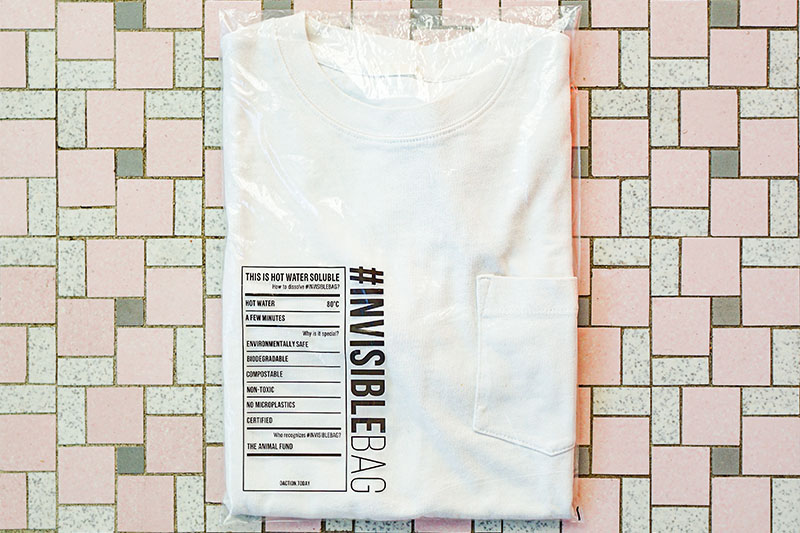
What’s next for Distinctive Action?
We have several things on our agenda. We want to target shipping services and replace the wrapping used for delivering online shopping packages. On top of that, we want to replace packaging used in the F&B industry. Our bags are hydrophilic, which can be its biggest strength because it leaves no trace on the planet, but it is also its biggest weakness because it cannot hold wet items like seafood, meat, or saucy dishes. Invisible bags are an entry-level product because they’re easy to go with for any kind of business, but we want to work with R&D and partner with other engineers to create a new application that can tackle more forms of plastic waste.
Related Articles
Chris Brown: Rethinking Corporate Sustainability in Hong Kong
K11 Musea: Is This USD 2.6 Billion Sustainability Mall Worth the Hype?
Christina Dean: The Woman Leading a Global Movement in Fashion Sustainability
